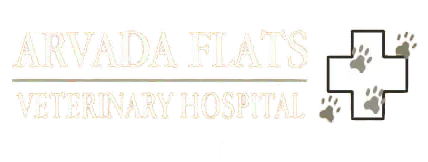
How to Keep Your Pet Cool This Summer
Your pet may not need a new summer wardrobe, but your furry friend can certainly benefit from a little extra grooming during the warmest months of the year. These five summer grooming tips will help keep your pet cool, clean, and comfortable during the summer months.
Brush Your Pet Often
As temperatures rise, your pet begins shedding its heavy winter coat, leaving piles of hair behind on your furniture and floors. Regular brushing offers a simple way to reduce the amount of hair floating through your home. Most pets benefit from a weekly brushing during the summer, although pets with long hair may require daily brushing.
In addition to removing excess hair from your pet's fur, brushing also:
- Gets Rid of Dirt
- Distributes Natural Oils Through Your Pet's Coat
- Improves Skin Condition
- Decreases Tangles and Mats
Some pets enjoy being brushed more than others. If your pet becomes agitated or restless, stop the session and resume it a little later. Brushing offers the perfect opportunity to spend a little one-on-one time with your pet and should be a relaxing experience for both of you.
Increase Baths
During the summer, more frequent baths may help your pet look and smell his or her best. Bathing a little more often is particularly important if your pet enjoys rolling in the mud or likes to swim in ponds, lakes, the ocean, or a swimming pool.
Does your pet suffer from seasonal allergies? Weekly or bi-weekly baths will wash away allergens and may reduce allergy symptoms for pets and family members who may also struggle with allergies. In between baths, wipe your pet's body with a moist washcloth daily and wash bedding weekly.
Cats groom themselves countless times during the day and usually don't need to be bathed. Spot cleaning is best if your cat has a patch of dirt on a leg or bumped against your freshly painted wall. Full baths may be needed occasionally if your cat can no longer groom itself, is hairless or has long hair.
Think Twice Before You Shave Your Pet
Your pet's hair provides a naturally cooling effect during the summer. In fact, shaving your dog or cat, or even cutting its hair, can interfere with its ability to regulate heat. During warmer weather, your pet's hair stands upright, allowing for maximum airflow and cooling. When temperatures drop, the hair flattens and naturally insulate your pet from cold weather.
If you do decide to cut your pet's hair, leave at least an inch. Cutting the hair shorter can increase your dog or cat's risk of developing painful sunburns.
Pay More Attention to Pads and Nails
Your pet may be more likely to develop skin infections when it's hot and humid outside. Trimming hair around the paws and between the toes can help prevent infections.
Check your pet's paws and pads after romps through the woods, fields, or even trips around the block. Foreign objects, burrs, and thorns can become lodged in and around paws, causing pain and discomfort.
Burns can occur easily if your pet walks on hot pavement during the summer. Walk your pet in grassy areas to avoid burns or limit walks to the cooler early morning or evening hours. Call your veterinarian if your pet limps, favors a paw, or has obvious cuts or burns on pads.
Regular nail trims are also important during summer months when your pet is more likely to be active. Long nails tend to break more easily, particularly if they're caught in a crack, and may even begin to grow into your pet's skin.
Use Sunscreen for Some Pets
Hairless pets and animals that only have one coat of hair can benefit from an application of sunscreen or sunblock if they'll be outside during hot summer days. Sharing your sunscreen with your pets isn't a good idea, as these products may not be safe for animals. Choose products designed specifically for pets and avoid sunscreen or sunblock that contains zinc oxide. The ingredient can cause severe anemia in both dogs and cats.
Some pet supply companies offer lightweight coats that can be used instead of sunscreen. Although sunscreen, sunblock, and coats can help protect your pet from burns, it's best to avoid sun exposure during the middle of the day.
Good grooming is essential to your pet's comfort during the summer. If you have grooming questions or need to schedule a veterinary appointment for your pet, give us a call.
Sources:
Modern Dog: Top 5 Summer Grooming Tips for Dogs
https://moderndogmagazine.com/articles/top-5-summer-grooming-tips-dogs/96219
ASPCA: Dog Grooming Tips: Bathing Your Dog
https://www.aspca.org/pet-care/dog-care/dog-grooming-tips
WebMD: Should You Shave Your Pet for Summer?
https://pets.webmd.com/features/shaving-dog-or-cat-during-summer#1
Purina: Do You Need to Bathe Your Cat
https://www.purina.co.uk/cats/health-and-nutrition/grooming-and-daily-care/do-cats-need-baths
